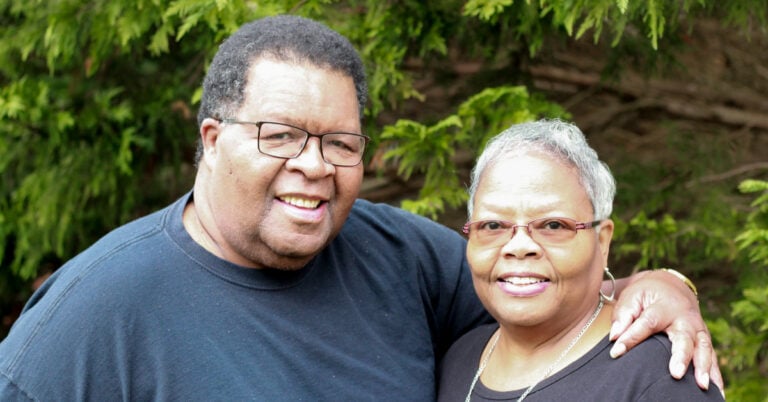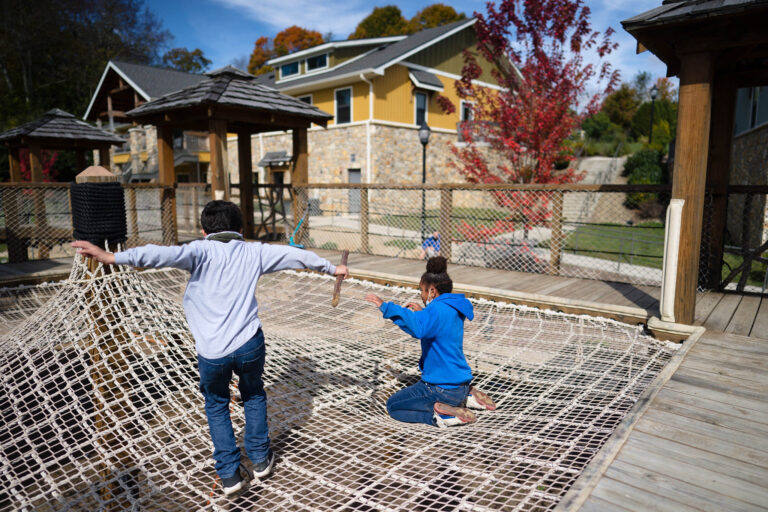Foster parenting is a hard job, no doubt about it. It is a significant commitment in terms of time, energy, and the family’s resources. The turnover rate is high. An estimated 30-50% of licensed foster homes across the nation close within their first year. At the same time, the needs are as great as ever. An agency like Crossnore may receive thousands of requests for foster care placement over the course of a year. How can we keep up?
Meet Long Term Foster Parents: The Butlers
There is hope. We are so fortunate to have families that embrace foster care as a life calling. They are able to say “yes” to sharing their home, again and again. We are celebrating the retirement of one of those families after 25 years of serving children and families through foster care. Meet Carolyn and Norman Butler, who have opened their home to 20 children since 1997.
As they prepared to close their license, the Butlers sat down with their Family Caseworker and shared some of their experiences, lessons learned, and advice for others who might be exploring foster parenting.
What are some favorite memories from your time fostering?
Carolyn recounted the story of a teenager, Paula*, who came to their home with a plan of Guardianship. That means that the team and the courts didn’t expect that Paula would be able to go back to her mother. All of the efforts so far to get them safely back together hadn’t worked. And Paula’s mother wasn’t highly engaged. When Paula came to Carolyn and Norman, the Butlers still made efforts to build a relationship and to support the connection between mother and daughter.
Regardless of where Paula ultimately would live, they knew that connection with her family was crucial for Paula’s well-being. They all got together on the weekends. And over time the mother became really motivated to do what was needed to get her children back. Little by little, the Butlers and Paula’s mother rebuilt trust through these interactions. Eventually, Paula was able to go back to her mother after all–as were her siblings! Carolyn and Norman were thrilled to see that family move toward healing and they still maintain contact today.

Norman remembered when they were fostering two sisters who had a deep love for candy bars. After a trip to the grocery store, he brought one home for each of the girls, and it seemed to make their hearts soar! It became a tradition that both Norman and the girls cherished–a small token from each grocery run to remind them that he was thinking of them and that he cared.
One of the best gifts they received in their time as foster parents was their grandson. As the son of the first young woman placed in their home, Carolyn and Norman had the opportunity to help raise this baby from the time he was born to the present day. While not their biological grandson, he is the grandson of their hearts.
What did you love about being foster parents?
As a foster dad, Norman enjoyed the opportunity to build enough trust with the kids that they came to him for advice. To get to the point where someone is willing to share their thoughts, fears, feelings, and troubles means that you’re doing something right.
Carolyn loved that they were able to provide kids with an opportunity to live in a healthy family setting. Kids come to foster care through no fault of their own. They were unsafe in some way in the home where they came from. Because of that, it can initially be hard for them to feel relaxed and enjoy family life. Over time, the Butlers were able to share meaningful life experiences and show the children what a home can be like. These kinds of positive interactions are something that kids can take with them–not just as memories, but maybe also as examples of some new ways to interact with and relate to their families of origin.
What do foster parents need to be prepared for?
The Butlers acknowledge that foster parenting is tough sometimes. While it can be incredibly rewarding to connect with the child’s family and support those relationships, it is not always easy. The family is in a highly stressful season in their lives that has led to some critical safety issues in their home. On top of that, they are now separated from their children. There may be heightened emotions that foster parents will encounter. Biological parents may also have their own ideas about how things should be handled within the foster home. Sometimes this conflicts with what actually works for the foster parents. There is support, but foster parents need to know that a good bit of their energy will go toward those relationships with the biological family.
Carolyn and Norman added that along with many positives and incredible strengths, the kids also come with some challenging behaviors. It can be hard to find consequences that are trauma-informed and effective. Foster parents need to experiment with different strategies and approaches to find what works for that child, at that time, for that situation. And be prepared to go back to the drawing board when that strategy no longer works.
Finally, the Butlers encourage foster parents to go in knowing that this is a big commitment in terms of time and scheduling. Both of them worked outside of the home while fostering. And it does take organization and flexibility to manage all of the schedules, appointments, and meetings that come along with fostering a child in your home.
What is the secret to being long term foster parents?
Foster parenting comes from the heart. The Butlers have loved the kids in their care, and that love helped them keep going when things were difficult. Love doesn’t make everything easy or ok. But it is foundational for everything else. Because they care so deeply, Carolyn and Norman were able to separate the kids’ behaviors from who they are as people. They didn’t take children’s actions personally. They were patient with the change process. The Butlers understood that you do not see progress in a day or even a month. It takes time to unlearn behaviors and to develop new ways of interacting with others.
Foster parenting is not something you can do on your own. Carolyn and Norman identified support from family, friends, and the system as one of the biggest factors in being able to foster year after year. Foster families need both practical and emotional support, and it’s imperative to have those “go-to” people in your corner.
What advice do you have for new or prospective foster parents?
To those who are fostering or are considering it, the Butlers encourage foster parents to be prepared to meet children where they are. Yes, you will need to set limits and boundaries. But you must also have realistic expectations. These young people have been through so much and bring some heavy burdens along with them. Having expectations so high that they’re out of reach will lead to frustration for you. And will take a toll on a child’s self-esteem and sense of competency. Foster parents will need to tolerate some challenging behaviors and focus on the most important things. Change does happen, but it does not happen all at once. Young people in foster care have been through some incredibly difficult things and need time and patience to heal and grow.
The Butlers advise foster parents to get rid of the mindset that you can parent like your parents did. Or even that you can parent children/youth in foster care the same way you have parented your biological children. They come to live in your home through very different circumstances. Your approach must take that into account.
Carolyn says it’s important to “own up to your own mistakes and apologize when you need to.” Not only does this build trust, but it’s incredible role modeling to a child to take responsibility for your actions and to make amends when needed.
And lastly? “Have a sense of humor.” For those of use who have known the Butlers over the years, we can attest that their smiles and laughter are never far from their faces. It is not easy, but there is joy and fun and meaning for those willing to find it.
Thank you and Congratulations!
Thank you, Carolyn and Norman, for your years of service and for your example of what it can look like to make a difference. Congratulations, and enjoy your hard-earned retirement!
Written by Carly Johnson, Permanency Planning Supervisor; Carolyn and Norman Butler, Crossnore Foster Parents; and Kelly Riley, Director of Foster Home Licensing & Training



